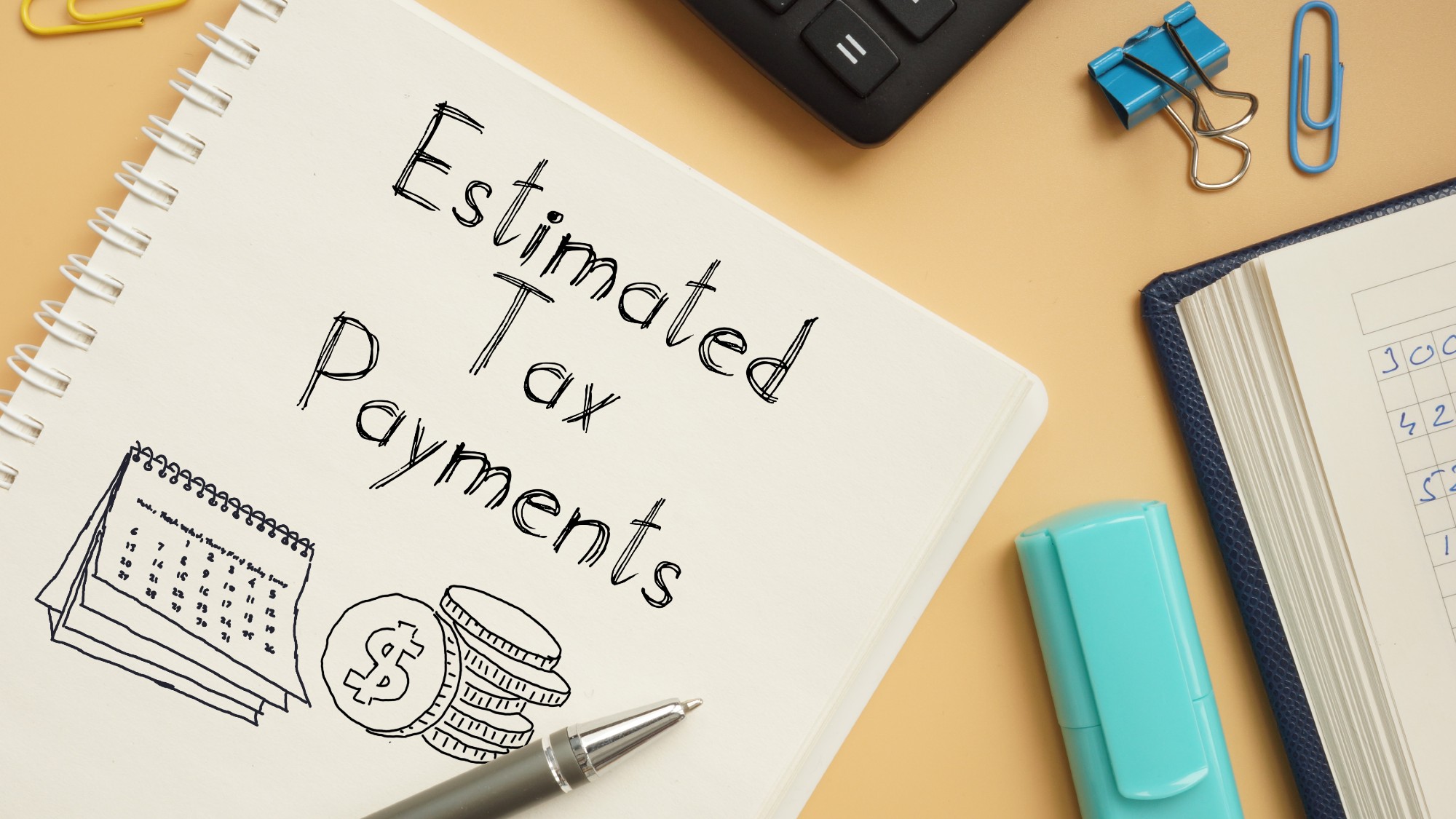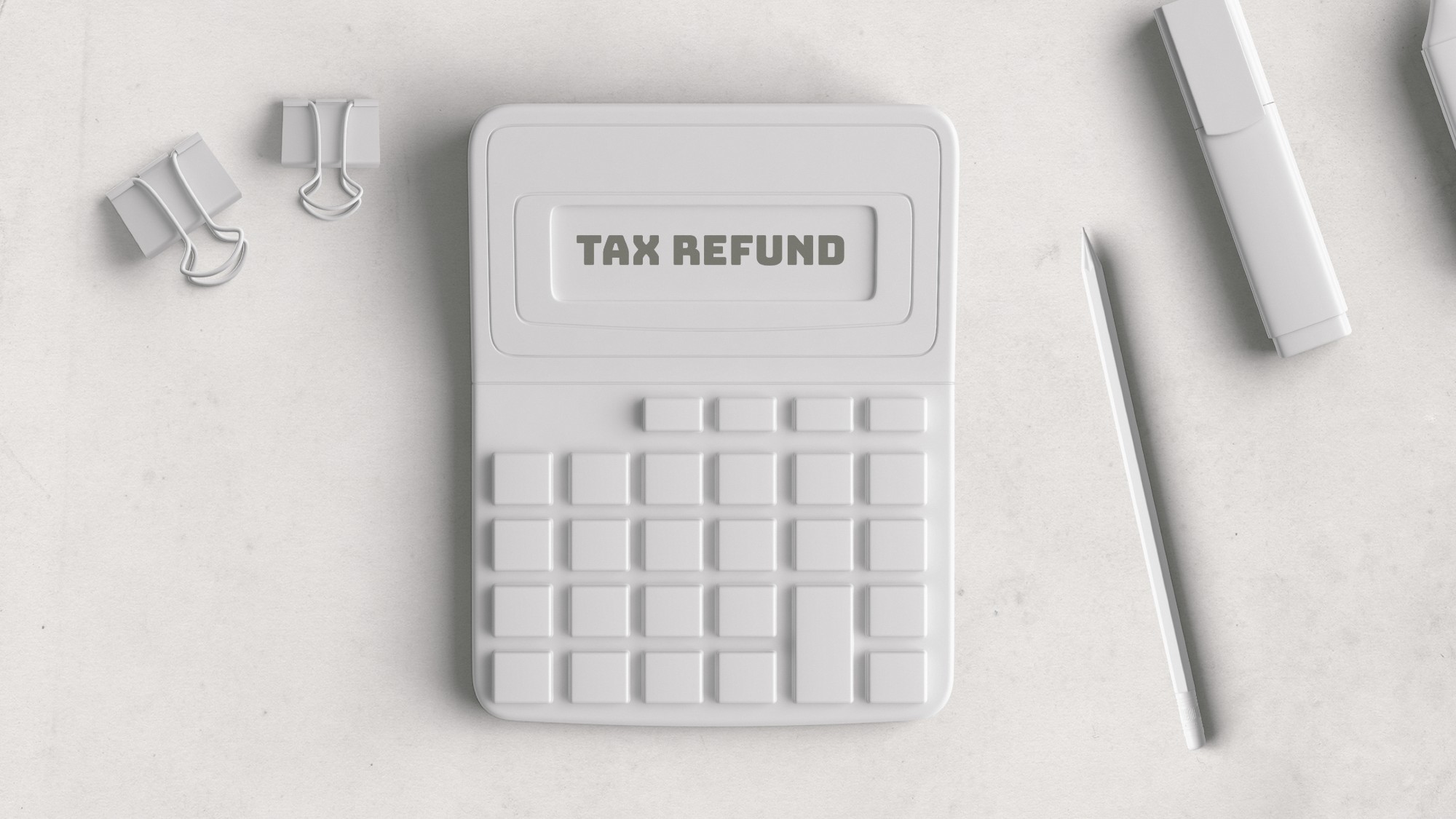When to hire a tax pro
Paying someone else to handle your taxes can save you a lot of time and energy. But not everyone needs to.


A free daily email with the biggest news stories of the day – and the best features from TheWeek.com
You are now subscribed
Your newsletter sign-up was successful

Tax season can be stressful, and the idea of passing all your complicated paperwork over to a professional so you can reclaim some of your time and energy is very tempting. Of course, tax services come with a price, which can feel like an unnecessary expenditure — especially if your return is fairly straightforward. If you do decide you want to hire someone, you'll have to go through the research and vetting process to find a tax preparer you trust.
When should you pay someone else to do your taxes?
Whether or not it makes sense to hire a tax preparer comes down to how complicated your taxes are. Clay Ernst, a certified financial planner with Edelman Financial Engines in Colorado Springs, Colo., told The Wall Street Journal that "for taxpayers with straightforward returns, it may be overkill to pay for an expensive tax preparer."
But what does a simple tax return look like, compared to a more complicated one? "A retiree with a Social Security check, a pension check, and an annual distribution from an individual retirement account" might all count as having "straightforward" returns, the Journal said. Married couples where "both spouses have W2 wage and tax statements, and they have limited investments outside their workplace retirement plans," would also be pretty straightfoward. In those situations, tax software should suffice.
The Week
Escape your echo chamber. Get the facts behind the news, plus analysis from multiple perspectives.

Sign up for The Week's Free Newsletters
From our morning news briefing to a weekly Good News Newsletter, get the best of The Week delivered directly to your inbox.
From our morning news briefing to a weekly Good News Newsletter, get the best of The Week delivered directly to your inbox.
On the other hand, more complicated tax situations can include "working in multiple states, having restricted stock units that vest, or selling a rental property," as well as earning self-employment income, given the higher risk of an audit due to potential deductions.
But even in those more complex scenarios, it's still possible to purchase an upgrade to a DIY tax software, such as one that lets you chat with a tax pro or even get your return reviewed by a CPA.
What to look for in a tax expert
Let's say you want to skip the average 13 hours of time that Americans spend doing their taxes. You'll still need to reserve some time for vetting potential tax preparers. Here's how to find someone who's up to snuff:
- Check the preparers' credentials. First thing's first — make sure you work with a credentialed preparer, which means that person has been vetted by either the IRS or a state or regulatory board. This is important because, according to Kiplinger, "anyone can call themselves a tax preparer." At the very least, a preparer should have an IRS-issued preparer tax identification number (PTIN), though the Journal notes that "having a PTIN alone doesn't guarantee any level of expertise." Instead, you might look for credentialed preparers who are certified public accountants (CPA), enrolled agents, or lawyers. These types of professionals must pass competency exams, meet continuing education requirements, and adhere to standards of conduct. They're also able to represent taxpayers before the IRS in the case of an audit. To quickly narrow your search, consider using the IRS's online Directory of Federal Return Preparers, which will allow you to verify a preparer's credentials.
- Look into a preparer's reputation and history. Beyond looking up credentials, you'll want to do some digging of your own. Kiplinger recommends researching a preparer's reputation and history. You might check a preparer's letter grade on the Better Business Bureau. To verify credentials, you can contact the CPA or attorney licensing board in your state, or, for enrolled agents, you can email the IRS for verification.
- Ask if they have other clients like you. While not as critical as questions of credentials and reputation, it's also helpful as you're researching your options to find out if a preparer has experience with a tax situation like yours. Ernst told the Journal that he suggests asking potential preparers "about their core practice, whether they have small business or expat clients, for example, to make sure they are a good fit."
- Find out if they offer extra services you might need. If you're already sinking in the time to find someone to work with, you might as well find a professional who can meet all of your tax needs. The Journal suggests that "another thing to look for is whether a tax pro only does tax returns or also does proactive tax planning," as many preparers are only focused on filing rather than the bigger picture.
Questions to ask a tax preparer
Knowing what to ask potential preparers can make sure the vetting process is effective. Kiplinger recommends asking the following questions once you think you've found someone to work with:
A free daily email with the biggest news stories of the day – and the best features from TheWeek.com
- Can I see your up-to-date credentials? If the individual is not credentialed, ask them about their education and experience, as well as how they stay up-to-date on tax laws.
- What is your return preparation fee? Before agreeing to anything, find out how you'll be charged and how much you can expect to pay. Some might charge by the hour, or there might be a minimum fee with additional charges added on top depending on how complex the return is and how many schedules are needed.
- Can I review my completed return before signing it? This will give you the chance to ask questions if something doesn't seem quite right. You might also take a look at the anticipated refund. As Kiplinger says, "if the refund amount looks too good to be true… well, you know the adage."
Red flags when selecting a tax pro
Now that you know what to look for in a tax preparer, let's go over some red flags to keep your eyes peeled for. Kiplinger recommends you "walk away if you see or suspect anything suspicious," offering these examples of "egregious preparer misconduct":
- Charging a fee that's based on a percentage of your refund
- Asking you to sign a return that's blank
- Trying to file the return without you reviewing it
- Refusing to sign the return before filing
And if you think you've fallen victim to any misconduct, don't hesitate to report the preparer to the IRS. You can do so using Form 14157.
Becca Stanek has worked as an editor and writer in the personal finance space since 2017. She has previously served as the managing editor for investing and savings content at LendingTree, an editor at SmartAsset and a staff writer for The Week. This article is in part based on information first published on The Week's sister site, Kiplinger.com
New Tax Rules for 2023: Download your free issue of The Kiplinger Tax Letter today. No information is required from you.
Becca Stanek has worked as an editor and writer in the personal finance space since 2017. She previously served as a deputy editor and later a managing editor overseeing investing and savings content at LendingTree and as an editor at the financial startup SmartAsset, where she focused on retirement- and financial-adviser-related content. Before that, Becca was a staff writer at The Week, primarily contributing to Speed Reads.
-
 ‘Restaurateurs have become millionaires’
‘Restaurateurs have become millionaires’Instant Opinion Opinion, comment and editorials of the day
-
 Earth is rapidly approaching a ‘hothouse’ trajectory of warming
Earth is rapidly approaching a ‘hothouse’ trajectory of warmingThe explainer It may become impossible to fix
-
 Health insurance: Premiums soar as ACA subsidies end
Health insurance: Premiums soar as ACA subsidies endFeature 1.4 million people have dropped coverage
-
 What to know before filing your own taxes for the first time
What to know before filing your own taxes for the first timethe explainer Tackle this financial milestone with confidence
-
 Who has to pay the estate tax?
Who has to pay the estate tax?the explainer Trump's new bill will permanently shift who owes federal estate tax
-
 How quarterly estimated tax payments work and when they are due
How quarterly estimated tax payments work and when they are dueThe Explainer Freelancers, small business owners and those with a side hustle may need to make more frequent tax payments
-
 Do you owe taxes on sports betting wins?
Do you owe taxes on sports betting wins?the explainer If you gain wealth of any kind, you must pay taxes on it
-
 5 reasons to file your taxes sooner than later
5 reasons to file your taxes sooner than laterthe explainer Many experts recommend filing well ahead of the annual April deadline
-
 What are your options if you end up owing taxes?
What are your options if you end up owing taxes?The Explainer If you can't pay your bill in full, do not despair
-
 5 options for filing your taxes for free
5 options for filing your taxes for freethe explainer This year, the IRS has expanded its Direct File program into 25 states
-
 How to figure out when your tax refund will arrive
How to figure out when your tax refund will arriveThe explainer How long do you have to wait between submitting your return and receiving the money?
